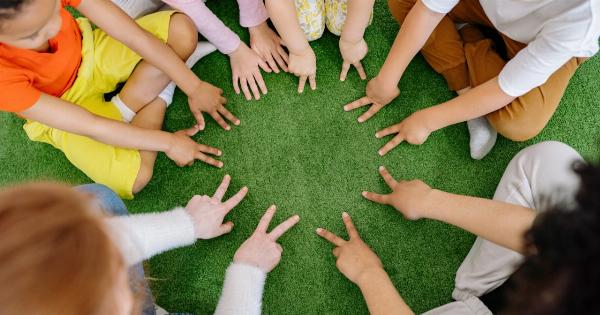Kindergarten is a significant milestone for both children and their parents. It marks the beginning of a new chapter in a child’s education journey, shaping their academic and social development.
As the transition from preschool to kindergarten approaches, many schools require children to undergo a school readiness test to assess their preparedness for this crucial phase of education.
What is a School Readiness Test?
A school readiness test is an assessment tool used by educational institutions to evaluate a child’s readiness for formal education at the kindergarten level.
It measures a child’s cognitive abilities, language skills, social and emotional development, and various other areas important for success in school. Through this test, educators gain insights into a child’s strengths and areas that may require additional support.
Why is the School Readiness Test Important?
The school readiness test helps educators identify children who might benefit from additional support or intervention before entering kindergarten.
It enables schools to understand the needs of each child and develop customized teaching strategies to ensure a smooth transition into kindergarten. Additionally, the test’s results help teachers design appropriate curriculum and structure learning experiences tailored to the individual needs of each child in the classroom.
What Does the School Readiness Test Assess?
The school readiness test typically covers various domains that are crucial for a child’s overall development. These domains may include:.
1. Cognitive Abilities
The assessment evaluates a child’s cognitive abilities, such as problem-solving skills, logical reasoning, numeracy, and literacy readiness. It helps educators determine if a child is equipped with the necessary foundation for academic success.
2. Language and Communication Skills
Language skills are fundamental in kindergarten as they form the basis for future learning. The test assesses a child’s oral language abilities, vocabulary, listening comprehension, and pre-reading skills.
3. Physical Development
Physical development encompasses fine motor skills and gross motor skills. The readiness test may include activities to assess a child’s ability to hold a pencil, cut with scissors, climb stairs, and engage in physical activities.
4. Social and Emotional Development
Kindergarten is a social environment where children learn to interact, share, and cooperate with peers and adults.
The assessment focuses on evaluating a child’s social skills, emotional regulation, ability to follow directions, and adaptability to new routines.
5. Self-Help Skills
The test may also include tasks to assess a child’s ability to perform self-help skills, such as dressing, using the restroom independently, and following basic hygiene practices.
Preparing Your Child for the School Readiness Test
While the school readiness test assesses a child’s natural abilities and development, parents can take steps to support their child’s preparation. Here are some strategies to help your child thrive in the school readiness test and beyond:.
1. Encourage Language Development
Engage in frequent conversations with your child, read together, and expose them to a variety of vocabulary-rich experiences.
Encouraging language development nurtures communication skills and enhances your child’s ability to express themselves effectively.
2. Foster Independence
Encourage your child to perform age-appropriate tasks independently, such as getting dressed, tying shoelaces, or organizing belongings.
Building self-help skills not only boosts confidence but also prepares your child for the routines and expectations of kindergarten.
3. Develop Fine Motor Skills
Engage in activities that promote fine motor skills, such as coloring, drawing, cutting with child-safe scissors, and building with blocks.
These activities enhance hand-eye coordination and dexterity, crucial for tasks like writing and using classroom materials.
4. Promote Social Interaction
Provide opportunities for your child to interact with peers through playdates, group activities, or joining a preschool program.
Social interaction helps children develop essential social skills, such as sharing, taking turns, and resolving conflicts, which are vital in kindergarten.
5. Establish Routines
Create consistent routines for sleeping, eating, and daily activities. Kindergarten often follows a structured schedule, so familiarizing your child with routine and structure helps them adapt more easily to the school environment.
6. Readiness Activities
Engage your child in readiness activities to expose them to basic academic concepts. These can include counting objects, recognizing letters, practicing writing their name, and engaging in age-appropriate puzzles or educational games.
What to Expect on Test Day
On the day of the school readiness test, it is essential to create a positive and supportive environment for your child. Here are some tips to ensure a smooth testing experience:.
1. Explain the Purpose
Communicate the purpose of the test to your child in age-appropriate language. Let them know that it is an opportunity to show what they know and learn in a fun way.
2. Stay Calm and Positive
Maintain a calm and positive demeanor throughout the testing process. Your child will mirror your emotions, so your support and encouragement are crucial in helping them feel relaxed and confident.
3. Rest and Eat Well
Ensure your child gets enough rest and has a nutritious meal before the test. A well-rested and nourished child is better equipped to concentrate and perform their best.
4. Dress Comfortably
Dress your child in comfortable clothing suitable for sitting and moving around during the test. Being physically at ease allows them to focus on the assessment tasks without any distractions.
5. Arrive Early
Arrive at the testing location early to avoid any unnecessary stress caused by rushing. Being punctual allows your child to settle in and familiarize themselves with the surroundings.
6. Celebrate Effort
Regardless of the test results, celebrate your child’s efforts and acknowledge their hard work. Praise their participation and reinforce that tests are just one way of showing what they know, and learning is a continuous journey.






























